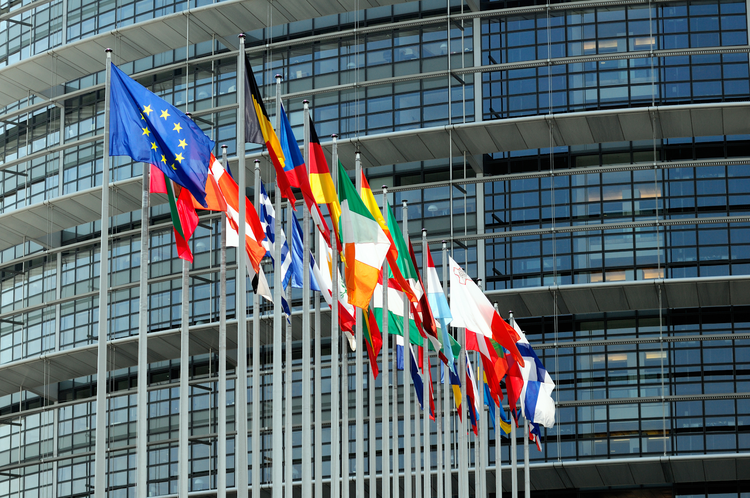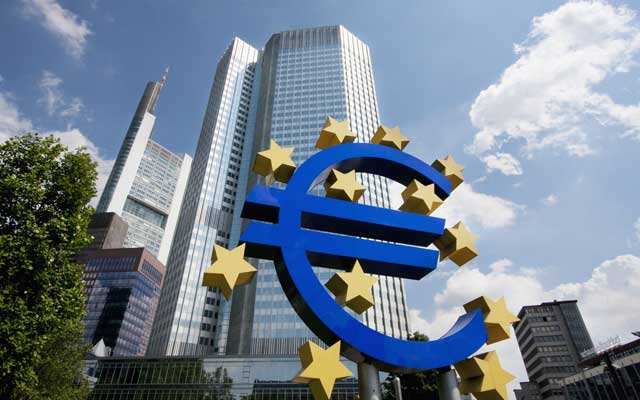The cryptocurrency regulation in the European Union is a complex mixture of the EU legislation and the national laws. In EU, there are a lot of tax-free crypto countries where there is no regulation at all regarding cryptocurrency.
EU finance ministers gathered in Vienna over the weekend in September and agreed that they won’t rush with steps to further regulate the market. Ministers do not see digital assets as a threat to the financial system and will refrain from any steps until a complete analysis conducted by financial authorities in Europe comes out.
“For us, it is a question of clear rules of the game for companies, customers and consumers in order to make crypto assets usable as financial instruments, and not a question of excessive regulation,” Austria’s Minister of Finance, Hartwig Löger told the attendees.
“With a vision for Europe, we want to make the location more attractive for crypto assets and develop a European plan to position ourselves more strongly in this emerging segment,” says Löger.
This comes despite a report prepared by Brussels-based think tank Bruegel, urging the EU to adopt common rules on cryptocurrency and ICOs to control risks and exploit the potential of the industry and its underlying blockchain technology.
The September 6 edition of the Brugel report hinted toward a potential China-style cryptocurrency ban, stating “as done in China, mining farms can be forbidden.”
Meanwhile, in April this year the European Parliament voted 574 to 13 votes, with 60 abstentions to support a December agreementreached with the European Council, which proposed closer regulation for virtual currencies, like bitcoin, to prevent them being used for money laundering and terrorism financing.
In a bid to end the anonymity associated with cryptocurrencies, the measure obliged virtual currency exchange platforms and custodian wallet providers to apply due diligence procedures, including customer verification. It also required such platforms to be registered. The agreement represents the fifth and latest update to EU’s Anti-money laundering Directive and is partly a response to the terrorist attacks of 2015 and 2016 in Paris and Brussels, as well as the Panama Papers leaks.
The European Union’s Fifth Anti Money Laundering Directive (5AMLD) launched on June 19th, 2018 directed all European Union member states to enforce the rules and regulations in this directive prior to 20th January 2020.
Back in October 2012, the European Central Bank was among the first reputable institutions in the world to present a view on cryptocurrencies. In the report titled “Virtual Currency Schemes,” the ECB defines Bitcoin as a “convertible, bidirectional and decentralized virtual currency,” or a “type of unregulated, digital money, which is issued and usually controlled by its developers, and used and accepted among the members of a specific virtual community.”
In 2015, the ECB produced another, updated and revised Virtual Currency Schemes report, in which the Central Bank argues that virtual currencies do not fully meet the three golden criteria of “money” as defined in the economic literature: medium of exchange, store of value, and unit of account.
The ECB labeled the virtual currency as “a digital representation of value, not issued by a central bank, credit institution or e-money institution, which, in some circumstances, can be used as an alternative to money,” omitting words such as “digital money” or “unregulated.”
In February 2018, Europe's three top financial regulators - European Securities and Markets Authority, European Banking Authority and European Insurance and Occupational Pensions Authority- issued a pan-EU warning to consumers regarding the risks of buying cryptocurrencies. The regulators warned that cryptocurrencies are highly risky and unregulated products and are therefore “unsuitable as investment, savings or retirement planning products.”
On May 23 the bosses of Europe's largest financial institutions called on central banks and regulators to take "urgent" action on the rise of cryptocurrencies, as Financial News reported.
Jean Lemierre, the chairman of BNP Paribas, the world’s 8th largest bank, told delegates at The Institute of International Finance Spring Membership Meeting in Brussels that regulators needed to "decide what they want" and provide clarity to the industry about any potential regulation on managing digital money. Francisco Gonzalez, the group chief executive of Spanish lender BBVA, in turn, called for financial services executives to talk to regulators "to force them to understand what is going on".
However, the attitude towards cryptocurrency differs across the European Union. While a lot of countries are clamping down on cryptocurrency, the Baltic nation of Lithuania is taking a different tack by fully embracing blockchain and crypto-based businesses. According to Live Bitcoin News, the country has raised 500 million euros from the industry over the past year. European central banks are unhappy with the development, fearing that it could fuel illegal activity and disrupt the current financial system.
The small Baltic nation of Estonia is another EU member state, whose tech-friendly government seems willing to implement innovations like blockchain technology for healthcare, banking services and even governance by allowing its citizens to become “e-Residents.”
With one of the highest internet penetration rates in the world, Estonia is home to a number of Bitcoin ATMs and startups such as Paxful, a global peer-to-peer buying and selling service for Bitcoins.
When it comes to initial coin offerings (ICOs), they are allowed in the EU, given they are in adherence to Anti-Money Laundering/Know Your Customer (AML/KYC) policies and to required business regulations and licenses, per the ICO’s business function, according to Bitcoin Market Journal.
The EU Parliament’s All-Party Innovation Group now offers potential new rules that would bring ICOs within the scope of an EU-wide crowdfunding regulation that is currently being drafted. The group considered a proposal drafted by British MEP Ashley Fox earlier this month. The report states that crowdfunding service providers "should be permitted to raise capital through their platforms using certain cryptocurrencies." It adds, however, that while ICOs "offer new and innovative ways of funding," they can also be used to "generate substantial market, fraud and cybersecurity risks to investors."






